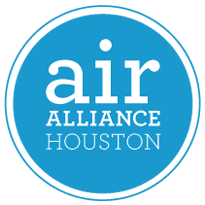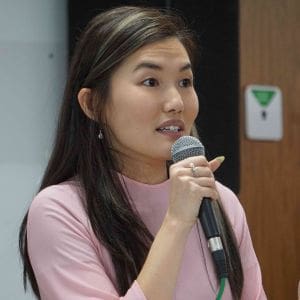
Crystal Ngo
Environmental Justice Outreach Coordinator
Climate justice means ensuring everyone has the right to a clean environment free of cancer clusters and polluted air/water. And having a more walkable city wouldn't hurt too to reduce reliance on cars.
Jasmine Khadem – Survey participant and Community Organizer & Program Coordinator for Emgage Texas
Growing up as the youngest of five in an immigrant family from Vietnam, I’ve spent most of my life in Houston. I’ve since realized my deep-seated passion for protecting our environment is rooted in my Asian heritage. While my family never said the words “environmental justice (EJ)”, the values of environmental stewardship are ingrained in me.
During this Asian American Pacific Islander (AAPI) Heritage month, I am overjoyed reflecting on the significance of hosting the first-ever AAPI Climate Justice Town Hall in Houston. Drawing inspiration from attending the first ever AAPI Climate Justice Summit in Los Angeles hosted by AAPI Victory Alliance, we partnered with Rise AAPI to organize this groundbreaking event. Our intent was to bridge the education and engagement gap between our AAPI community on the intersection of climate issues and its impacts on health – highlighting the pressing need for collective engagement in the fight for climate justice.
It was important for us to have this conversation in Houston, which is one of the cities with the largest Asian American population. As of 2020, nearly 620,000 people living in the Houston area identify as Asian American and more than 10,000 people identify as Pacific Islander. On the day of the event, I was grateful to see multiple generations, other communities of color, and various professionals supporting our vibrant community.
In 2021, there was a study by the US EPA (Environmental Protection Agency) which showed that Asian Americans were 8% more likely to live in areas with the highest projected increase in childhood asthma rates corresponding to a 2% increase in global warming.
Dr. Grace Tee Lewis, Environmental Defense Fund
We began our town hall with opening statements from Fort Bend County Judge KP George and a land acknowledgement from Austin City Council Member Zohaib “Zo” Qadri. Our first panel featured community advocates and environmental experts, who shed light on the intersection of climate justice and public health.
In our second panel, elected officials emphasized the crucial role of civic engagement and voting to address these pressing issues. They encouraged collaboration and to be involved with your elected officials to ensure representation and amplify our voices.

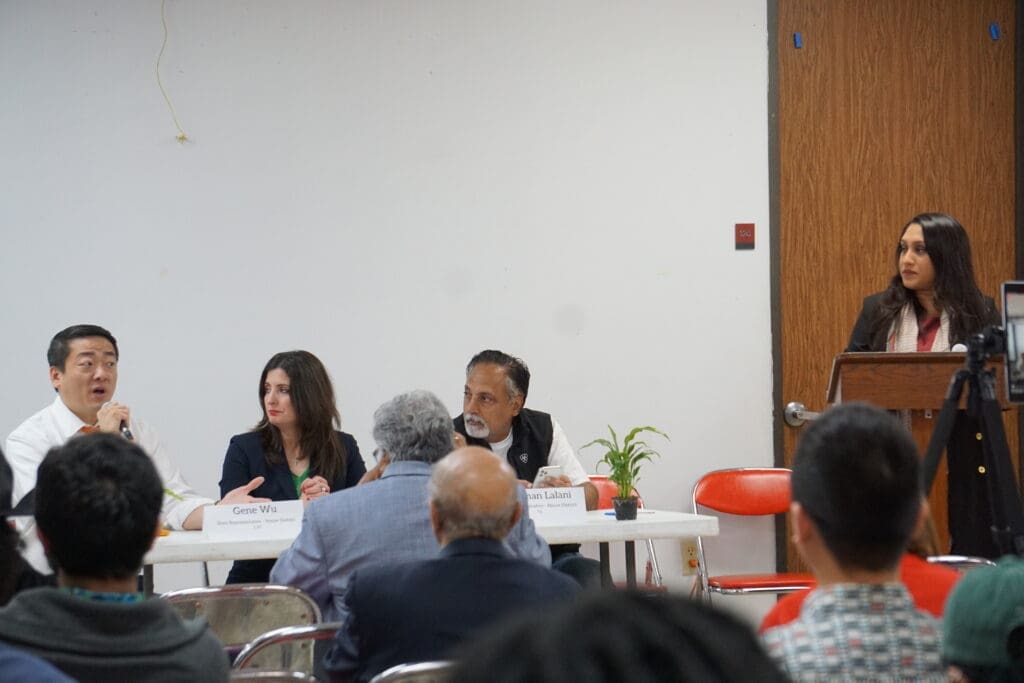
Language Justice and Access
Central to our town hall was the principle of language justice. To ensure that language barriers did not hinder participation or understanding, we provided interpretation services and translated materials in Korean, Mandarin, and Vietnamese.
Our commitment to linguistic inclusivity had a personal significance for me as well. My mother was able to attend the event and our interpretation services gave both sides the vocabulary on climate issues to facilitate an intergenerational dialogue. As someone who lacks the Vietnamese vocabulary for meaningful discussions on this topic, interpretation services helped me bridge the communication gap with my mother. Emphasizing our goal to establish a common language that makes conversing about climate issues more inviting for American-born Asians to have with their immigrant parents who may not be fluent in English, whether at a town hall or in their homes.
Survey Results
One of the highlights of the Town Hall was the survey we conducted at the start of the event, which provided valuable insights into community concerns and priorities.
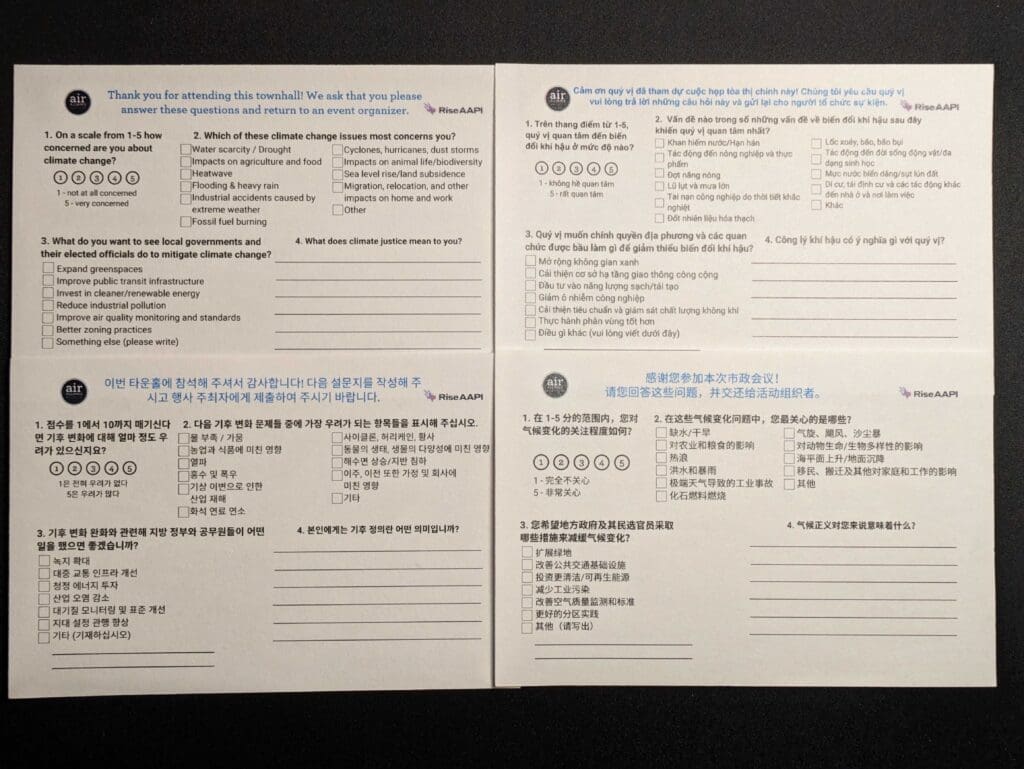
Our opening question to the survey showed that ALL participants had a high level of concern regarding climate change.
On a scale of 1-5 (1 being not concerned at all and 5 being very concerned), how concerned are you about climate change?
Notably, respondents expressed significant apprehension regarding issues such as flooding and sea-level rise—concerns deeply rooted in the lived experiences of many Houstonians. These results have inspired our next town hall to center around Pacific Islander communities who currently face land-loss from sea-level rise resulting in displacement/climate migration.
Climate issues are no longer a distant possibility but a harsh reality that poses both local and global challenges, urging us to take immediate action.
Which of these climate change issues most concerns you?
What do you want to see local governments and their
elected officials do to mitigate climate change?
Our Town Hall was a manifestation of collective power and purpose. With multiple generations represented, we demonstrated our commitment to building a more just and sustainable future for all. I’m excited to carry forward that momentum and continue our journey towards centering community voices and experiences in our advocacy efforts.
Asian Americans in Environmental Justice
Throughout history, Asian Americans and Pacific Islanders have played a crucial role in the EJ movement. From grassroots activism to advocacy at the policy level, our community has been at the forefront of efforts to address environmental injustices and protect vulnerable populations.
In the 1960s, Filipino-American labor activist Larry Itliong organized a successful strike by over 2,000 farmworkers, resulting in improved wages, benefits, and regulations, highlighting the intersection of workers' rights and EJ.
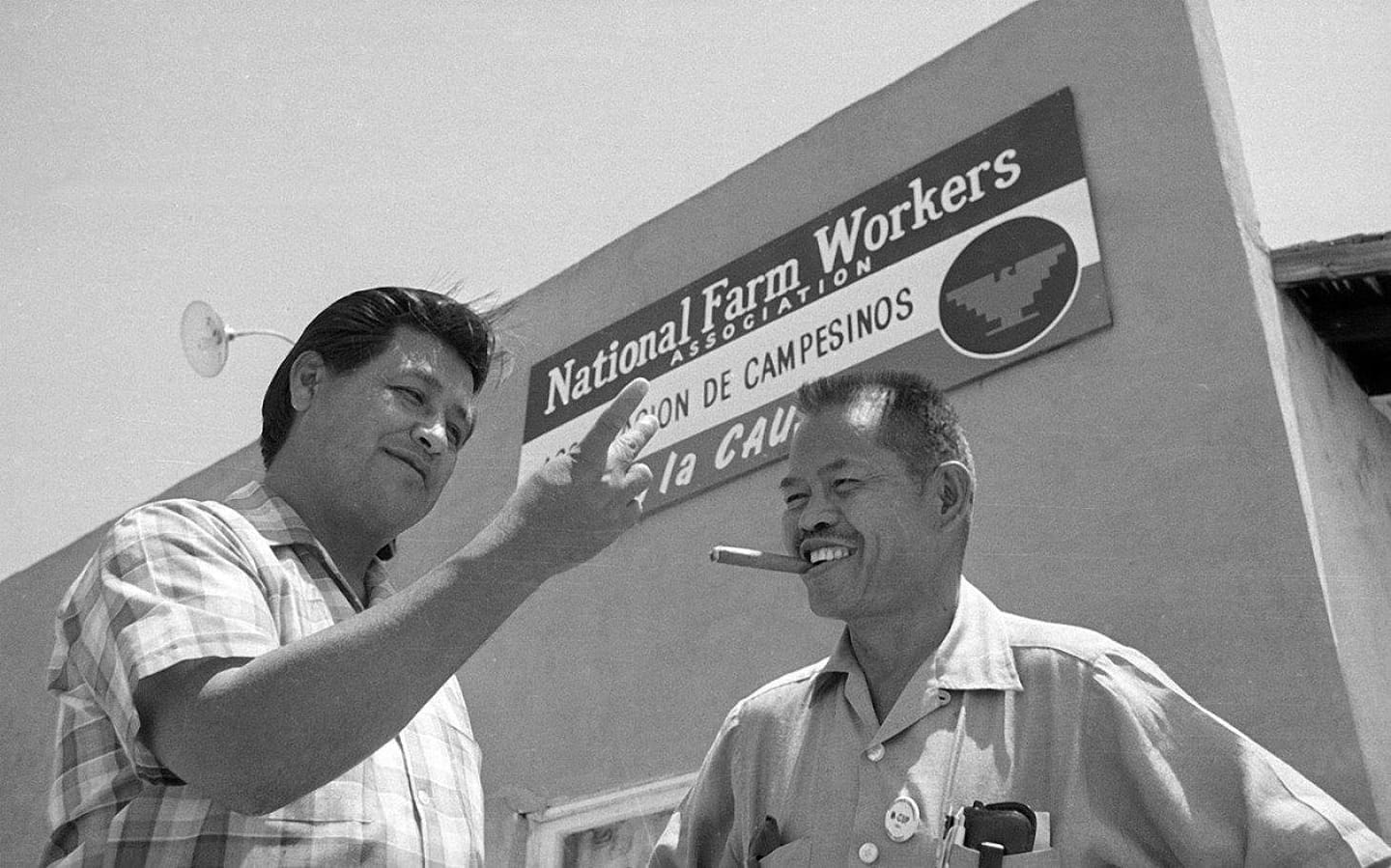
Cesar Chavez (L) and Larry Itliong (R) shortly after the Delano Grape Strike began. (UFW, 2023)
In 1987, Chinese-American activist-scientist Charles Lee conducted a groundbreaking study on toxic waste and racial disparities, laying the foundation for the EJ movement. Lee's leadership in convening leaders of color in 1991 led to the formal establishment of the movement.
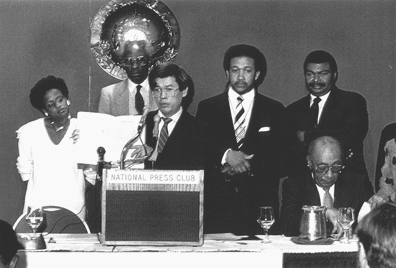
Charles Lee (at podium), announcing the release of the 1987 Toxic Wastes and Race report at the National Press Club. (EPA, 2022)
The Asian Pacific Environmental Network (APEN) emerged from this movement, formally founded in 1993 in Richmond, California, with a focus on fighting pollution, particularly near the Chevron refinery. APEN's advocacy efforts have resulted in significant victories, including legislation to mitigate carbon pollution in 2016 and a $5 million settlement from Chevron for a refinery fire in 2018. These milestones highlight APEN's enduring commitment to environmental justice.

We have a rich history of advocacy in the EJ movement, and it fills me with pride to contribute to this legacy. This town hall was just the beginning—a small step toward fostering more discussions and raising awareness about the urgent need for climate action within our community.
